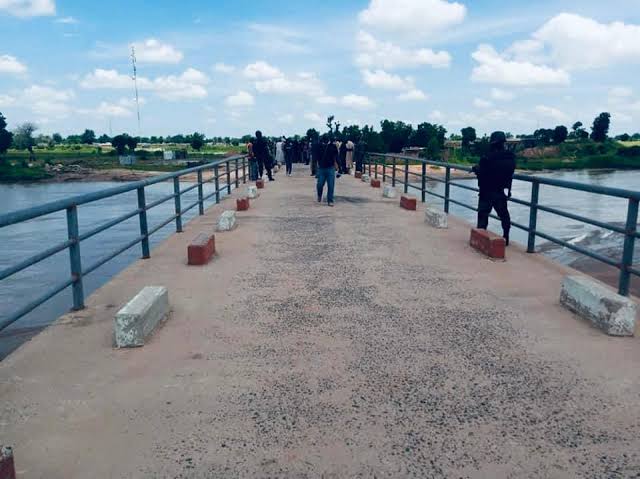News
Cameroon rebuilds bridge destroyed by Boko Haram in 2015

Cameroonian authorities have rebuilt a bridge destroyed by Boko Haram militants in 2015 in an effort to damage trade with Nigeria and Chad.
The Mayo Limani Bridge that links northern Cameroon and southeastern Nigeria was blown by the terrorists in the heat of their insurgency war but in a statement on Monday, the Cameroonian government said it had deployed additional troops to protect construction workers repairing other damage caused by the militants, who are still actively launching attacks in the border area.
Read also:Nigerian govt approves N15bn for repatriation of IDPs from Niger, Chad, Cameroon
The government said it spent an estimated $3 million to rebuild the span that same year, but Boko Haram militants chased construction workers away, forcing officials to stop pedestrians from crossing the bridge which is also a gateway to Nigeria for goods from Chad.
According to the ruler of Limani, Bichair Hachimi, civilians, especially merchants, were celebrating the full reopening this Monday of the 120-meter-long bridge that links Amchide in Cameroon and Limani in Nigeria.
Hachimi said people are grateful because economic activity will receive a boost on both sides of the border after eight years of almost no activity.
Bichair who spoke during a meeting in Yaounde to evaluate the Cameroonian government-sponsored projects on the northern border with Chad and Nigeria that experience Boko Haram attacks said Limani is a business hub in Nigeria’s Borno state.
Join the conversation
Support Ripples Nigeria, hold up solutions journalism
Balanced, fearless journalism driven by data comes at huge financial costs.
As a media platform, we hold leadership accountable and will not trade the right to press freedom and free speech for a piece of cake.
If you like what we do, and are ready to uphold solutions journalism, kindly donate to the Ripples Nigeria cause.
Your support would help to ensure that citizens and institutions continue to have free access to credible and reliable information for societal development.
























